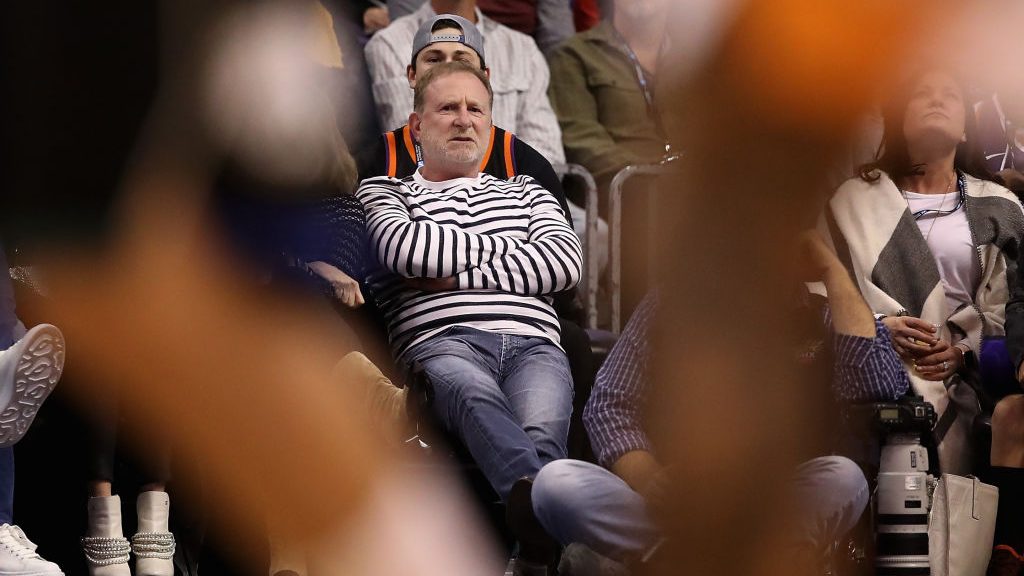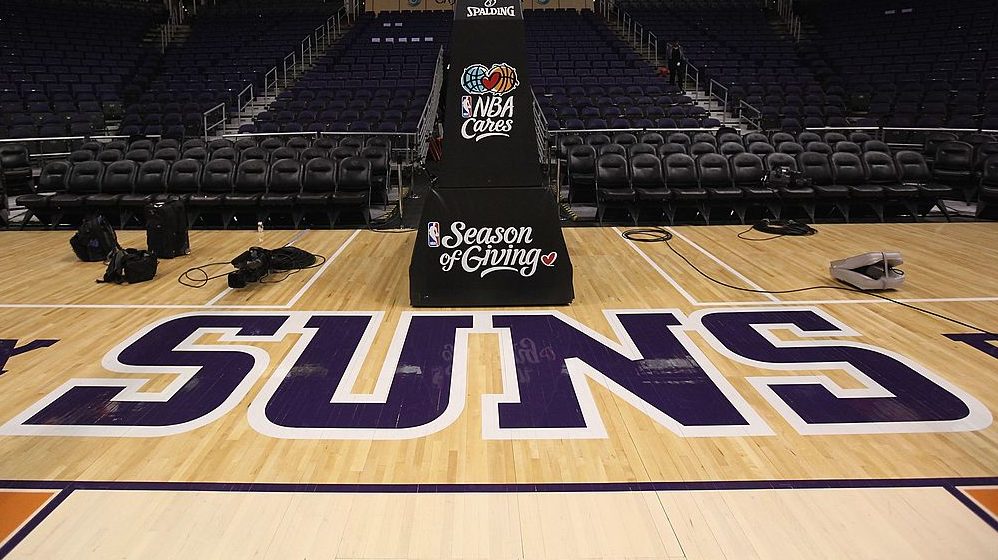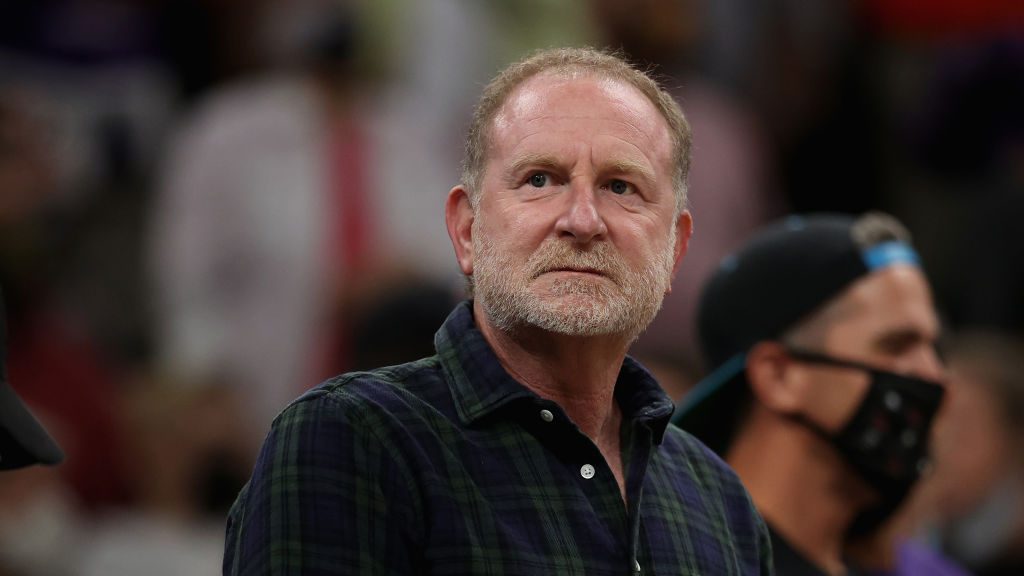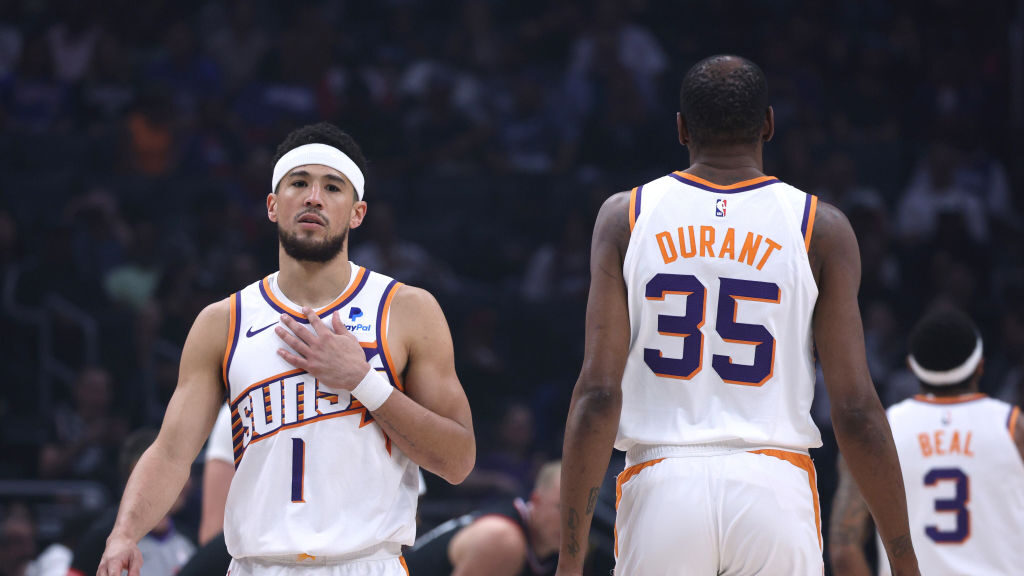What NBA’s Adam Silver answered about investigation of Suns owner Robert Sarver
Sep 14, 2022, 1:28 PM | Updated: Sep 15, 2022, 7:28 am
NBA commissioner Adam Silver on Wednesday met with team owners and then took questions from reporters.
The large majority of his time with the latter encompassed the findings from the investigation of Phoenix Suns owner Robert Sarver that concluded a day earlier, with an announcement of the league suspending Sarver for a year and fining him $10 million.
“From a personal standpoint I was in disbelief to a certain extent of what I learned,” Silver said. “I was saddened by it, disheartened. I want to again apologize to the former and current employees of the Phoenix Suns of what they had to experience.
“The conduct is indefensible but I felt like we dealt with it in a fair manner.”
Silver was pressed on the NBA’s punishment for Sarver using racist and sexist language, while disparaging employees in countless examples exposed by the investigation.
The commissioner was asked why the punishment was not as harsh as it was in the case of former Los Angeles Clippers owner Donald Sterling. The commissioner also answered questions about the process, his judgment after reading the fact-finding done by Wachtell, Lipton, Rosen & Katz and more.
Did NBA owners discuss banning Sarver for life as punishment?
No. Silver said that discussion had not come up before he met with reporters on Wednesday.
Has there been any discussion about Sarver selling the Suns?
No. Silver said that discussion had not come up in conversations with Sarver.
Could Silver have given a harsher punishment?
Yes. While the NBA dealt Sarver the maximum $10 million in fines allowed by the league constitution, Sarver’s one-year suspension could have been longer, Silver said.
“I had the option to go longer,” he told reporters. “I will say it’s the second-longest suspension in the history of our league, just to put it in some sort of context.”
In one key admission, Silver said legal proof of racial “animus” — more on that below — would have led to stricter penalties.
How are the Sarver investigation findings different from the Sterling case?
Audio versus testimony was not the difference
Silver differentiated the Sterling case in two ways: For one, evidence in that case came via audio recordings confirmed to be the then-Clippers owner speaking racist remarks. Silver said there was a realism to that, giving the public the same very large threads of evidence that he had on his desk. However, the commissioner said that one being on tape was not the difference.
The context of witness accounts gathered by a law firm — the same one used in the Sterling case — in the Sarver case was different. While the firm released a 43-page report, Silver had a totality of all the findings available to him.
Much of that isn’t public because current and former Suns employees were given privacy.
“I have access to information that the public doesn’t. I’m able to look at the totality of the circumstances around the events in a way we’re not able to completely bring to life the nuance (of the released report),” Silver said. “I think that puts me in a different position as the person who has to render the ultimate judgment.
“I have available to me more of the context than the public can. That’s just the nature of it.”
Legal definitions of racially motivated language are important
Silver also said there was a dramatic legal difference in what Sterling said and what Sarver said from a racial perspective.
Sarver used the N-word on multiple occasions while quoting what Black people had said.
It should be noted here that Wachtell, Lipton, Rosen & Katz pointed to a lack of findings of racial “animus.” Sarver’s representation in a statement Tuesday also cited that the investigation “confirmed that none of Mr. Sarver’s actions or comments were based on racist, prejudiced or misogynistic intent.”
Silver admitted the reference to “animus” was indeed a legal distinction — one that likely limits what he can say on the matter. Asked if he personally thinks the evidence showed Sarver had none, Silver added he trusted the law firm’s findings.
“I think what we saw in the case of Donald Sterling was blatant racist conduct directed at a select group of people,” Silver said.
Silver said Sarver’s language was “beyond the pale” but “wholly of a different kind.”
“Looking over his track record of hiring, his track record of support … while there are these terrible things (in the report), there are also many, many people who had very positive things to say about him through this process.”
Where is the line drawn for unethical behavior in owners?
Silver was asked why a long list of behaviors over years of time that would have gotten most people fired did not lead to Sarver’s removal as a team owner.
He said he did not want to draw a line for other owners to potentially toe.
“There are particular rights here,” Silver said. “(There is a different between) someone who owns an NBA team as opposed to someone who is employed. I don’t have the right to take away his team … there could be a process. To me, the consequences are severe to Mr. Sarver, reputationally.
“There’s no neat answer here other than owning property, the rights to owning an NBA team, how that’s set up within our constitution, what it would take to move that team (from Sarver).”
The NBA office offered a clarification on that comment.
Regarding the reaction to commissioner Adam Silver's comments today about team owners having different rights than employees, NBA spokesman Mike Bass offered this clarification: pic.twitter.com/xT8LyAejev
— Shams Charania (@ShamsCharania) September 15, 2022
Does Sarver’s remorse seem genuine?
Silver was asked about Sarver’s 18-year track record, with many of the instances cited in the 43-page report. The commissioner said he believes Sarver has “evolved” — most of the cited instances in the report were from a while back, he mentioned.
In conversations with Silver, Sarver expressed remorse for his actions, the commissioner said.
Silver defended Sarver’s personal statement released Tuesday that said Sarver disagreed “with some of the particulars of the NBA’s report,” saying that he believed that to be about the context of some of Sarver’s listed indiscretions.
Is Sarver on a short leash once he returns?
Silver was asked if there had been guidelines laid out for Sarver once he returns from his suspension. Sarver must undergo training for proper workplace conduct as part of his punishment.
“No question he’s on notice,” Silver said. “He knows that.”











